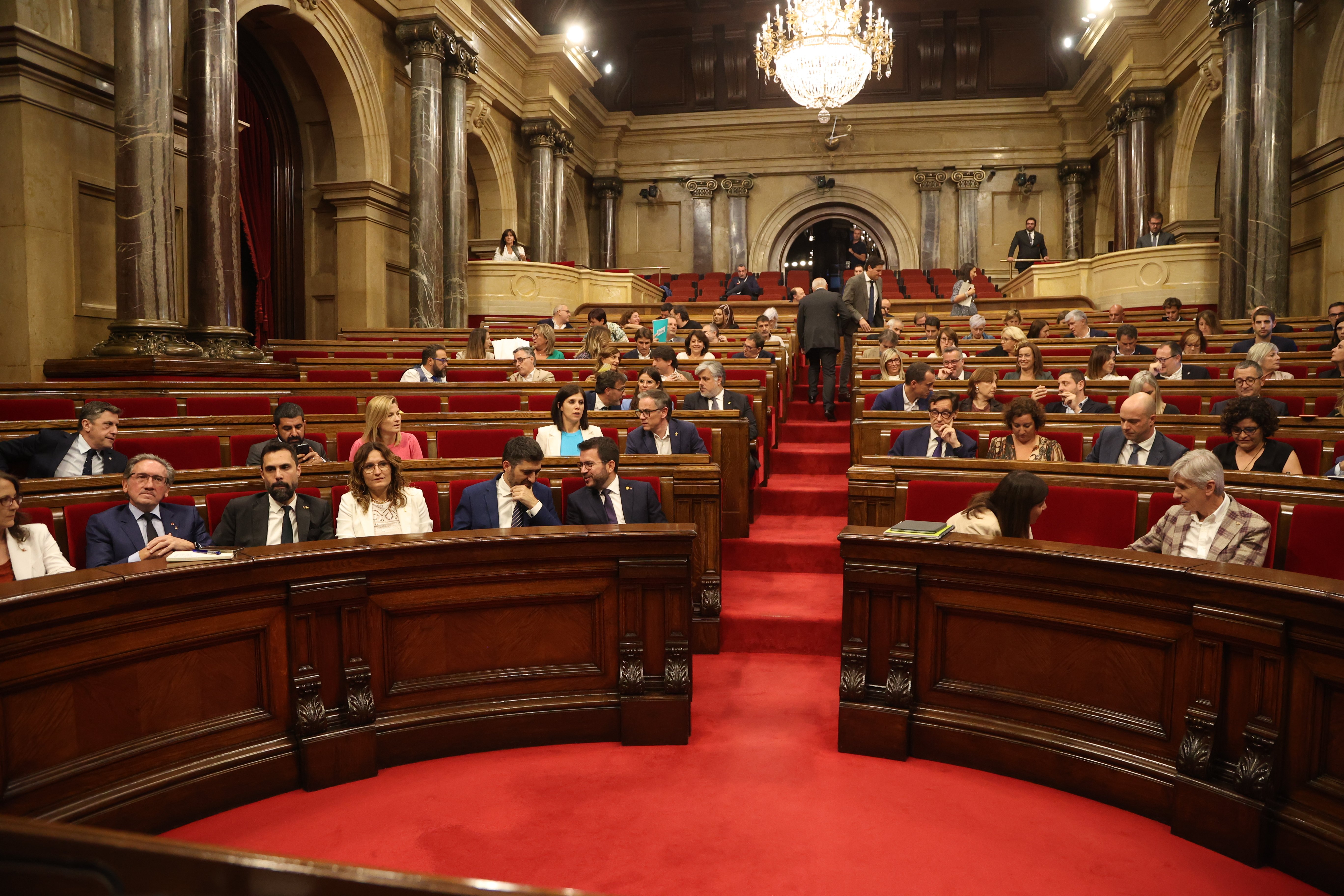One of the key elements of this Tuesday's parliamentary speech by the president of Catalonia, Pere Aragonès, was the need for a "broad agreement on self-determination", which he called the Agreement for Clarity in the Spanish State. The aim, argued Aragonès, is for the pact to "identify when and how Catalonia can exercise the right to decide again", a process that "Canada and Quebec have carried out". The agreement must be "transversal" and the result of a "consensus across [Catalonia]", indicated the president of the Generalitat. This proposal, which comes at a time when the president has admitted that the situation is "deadlocked", is not the first time it has been considered. In fact, in the 2018 general policy debate in the Catalan Parliament, the left-wing Comuns already raised this Canadian approach as a way of resolving the impasse.
📢 Aragonès proposes Clarity Agreement to guide a "definitive referendum" in Catalonia
In this case, it was En Comú Podem who proposed this formula through a proposal for a parliamentary resolution, under which the Catalan chamber was urged to find an "agreement between the broad majority of political forces in Catalonia" that would give rise to a referendum on self-determination. With this Law of Clarity, the party specified that it was necessary to establish, among other things, how this electoral process would be carried out, what question would be put and what the political consequences of the results would be. Later, they again proposed a Clarity Agreement. Specifically, during the campaign for the April 28th, 2019 Spanish general election.
ERC's Roger Torrent also promoted this option
In July 2019, the then-speaker of parliament, Roger Torrent (ERC), took the proposal for a clarity agreement to Madrid where he presented it at a breakfast conference. The ERC politician urged the Spanish government to return to the "political path". At that time, Torrent maintained that there was a "large majority" in favour "of going to the polls, in favour of the referendum" and that many people had demonstrated in the streets against the "deadlock, judicial persecution and disdain" of Catalonia. Along these lines, he advocated sitting down with the state to set a date for a vote on independence. The Spanish government response was almost as quick as this Tuesday, when in less than an hour it refused to join this Clarity Agreement. In 2019, it was the-then head of the foreign ministry, Josep Borrell, who shot down the idea: "There is no constitutional possibility of holding a referendum in Catalonia, I don't know how many times I have to say it".
Socialist minister Iceta's support for a clarity agreement
Two years ago, current Spanish culture minister Miquel Iceta was the person who found himself with a political headache after formulating this same approach. In the Catalan Socialist primaries held in 2016, in which he was re-elected first secretary of the PSC, Iceta indicated that the alternative to reforming the Spanish Constitution to advance "federalism" could be the Canadian route. The proposal raised a lot of controversy and, finally, it was not included in the party's presentation because the Socialists of the PSOE declined it at Spanish level. At the time, it transpired that, in a federal committee, Javier Fernández, a Socialist leader from Asturias, reprimanded Iceta for choosing between "the PSOE and the referendum".
Canada's Clarity Act was a law passed by the Canadian Parliament in 2000. It provided a regulatory framework for the terms of negotiations to be established between Canada and any of its provinces that might ever want to become independent. The law states that a referendum must be held asking "clearly" about independence and the result must also have a "clear" majority in favour. The Canadian law came after Quebec had held two referendums that were declared "illegal" by the country's Supreme Court.

